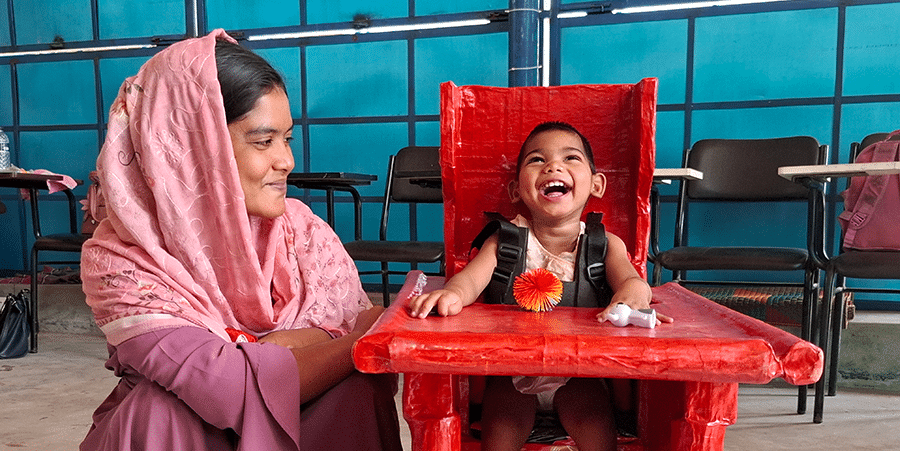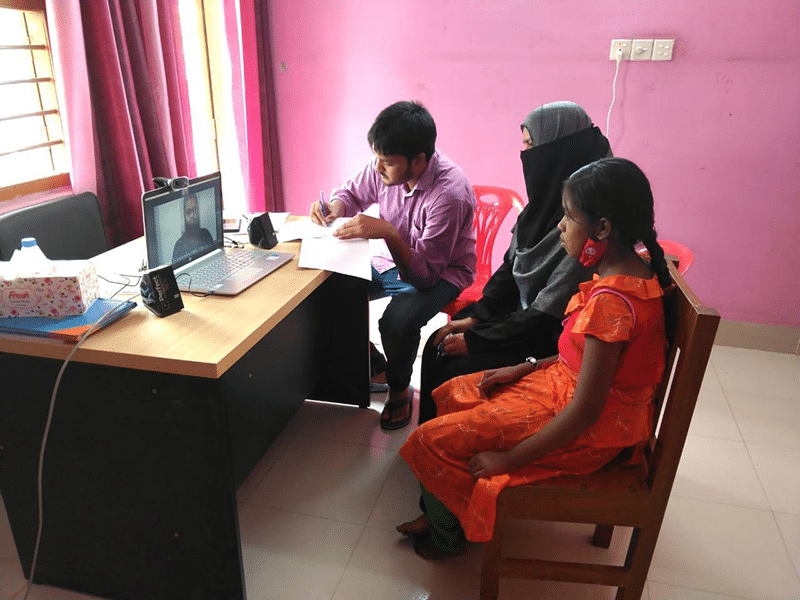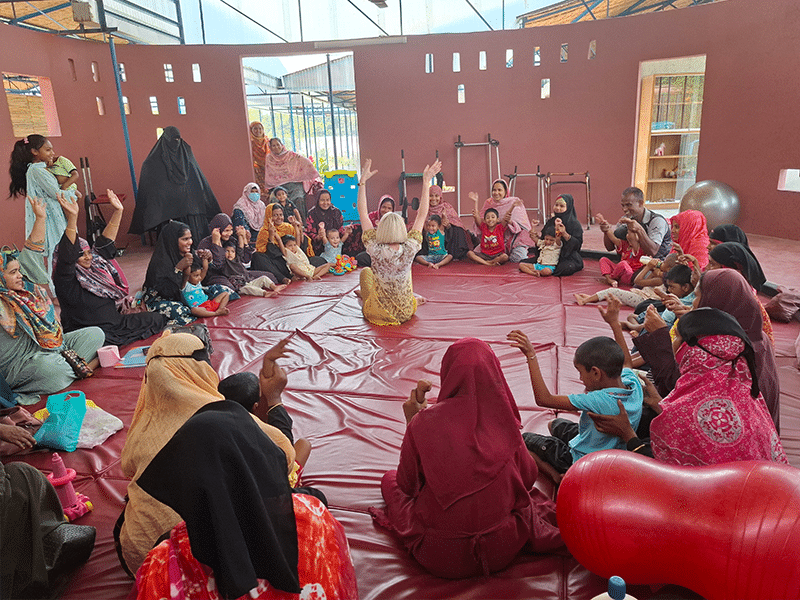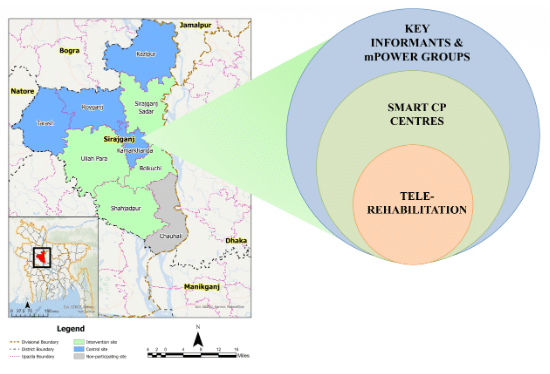
This initiative, funded by CPA, led by researcher Gulam Khandaker at the Bangladesh Cerebral Palsy Register and implemented by CSF Global (formerly the Child Sight Foundation), Bangladesh is part of our collaboration with the Global Low- and Middle-Income Country Cerebral Palsy Register and significantly enhances access to necessary care in low-income areas.
In Bangladesh, half of all children with CP have never received rehabilitation services, and those who do typically begin at an average age of 4 years—well beyond the age when it’s most effective. The country faces a severe shortage of rehabilitation professionals, with only one physiotherapist for every 106,383 people compared to 1:750 in Australia. Additionally. high out-of-pocket costs and long travel distances further compound these challenges.
The SMART CP Model has created a network of tele-rehabilitation services and community informants (teachers, health workers, religious leaders, and a peer support group of mothers of children with CP). The project not only shortens travel distances and cuts costs for families but also increases the use of helpful devices. It has made it possible for more children to receive timely diagnoses and interventions, showing promising results for broader applications in low resource settings worldwide.


Recognised in the esteemed JAMA Paediatrics journal, this model paves the way for future global health improvements. For more detailed information on the SMART CP Model’s impact, click here to read the study.
For more information please contact Professor Gulam Khandaker at gulam.khandaker@health.qld.gov.au

